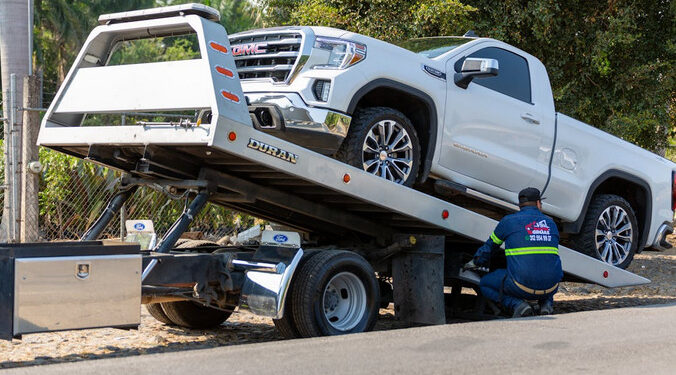Firearm laws can feel like a maze, filled with twists and turns that leave many gun owners puzzled. Whether you’re a seasoned enthusiast or just starting your journey into the world of firearms, understanding these laws is crucial. They not only dictate how you can purchase and carry weapons but also ensure responsible ownership. With regulations changing constantly across different states, staying informed is key to navigating this complex landscape. From federal mandates to state-specific laws, every detail matters when it comes to protecting your rights as a gun owner. Even in unexpected places like a strip mall housing the european wax center, 1308 theater dr, mt pleasant, sc 29464, where laws about carrying firearms in commercial establishments may vary widely depending on local statutes.
Different Types of Gun Laws
Gun laws vary widely across the United States, shaped by local culture and historical context. At their core, these laws can be categorized into several key types. Regulatory laws dictate how firearms are manufactured, sold, and transferred. They often include background check requirements and waiting periods for purchases. Another important category is ownership laws, which outline who can legally own a firearm. These regulations consider age restrictions, mental health evaluations, and criminal history.
State vs Federal Laws
Gun laws in the United States can vary significantly between state and federal regulations. At the federal level, laws provide a basic framework governing firearm ownership and sales. These include background checks for purchases through licensed dealers and restrictions on certain types of firearms. However, each state has the authority to implement its own set of rules that may be more restrictive or lenient than federal mandates. This means that what is legal in one state might not be permissible in another.

Common Misconceptions About Firearm Laws
Many people hold misconceptions about firearm laws that can lead to confusion. One common belief is that all guns are illegal in certain areas. In reality, restrictions vary widely by state and locality. Another myth is that a background check isn’t needed for private gun sales. However, many states require checks even for these transactions, aiming to ensure responsible ownership. Some individuals think carrying a gun openly means it’s legal everywhere. Open carry regulations differ significantly from one place to another, often requiring permits or specific conditions.
How to Legally Purchase and Own a Gun
Purchasing a firearm legally involves several essential steps. First, research your state’s specific laws and regulations regarding gun ownership. Requirements can vary significantly, so it’s crucial to familiarize yourself with local guidelines. Next, visit a licensed dealer or a reputable private seller. Always ensure that they are following the necessary procedures for background checks and documentation. Most states mandate that buyers undergo these checks before completing any purchase.
Concealed Carry Permits and Regulations
Concealed carry permits allow individuals to legally carry a firearm in public, hidden from view. The process for obtaining these permits varies significantly by state. Others operate under “may issue” laws, giving discretion to local officials. Understanding your state’s requirements is crucial. Training courses often play a vital role in the application process. These can range from basic safety classes to more comprehensive training on self-defense and legal responsibilities.

Responsible Gun Ownership and Safety Measures
Responsible gun ownership goes beyond simply possessing a firearm. It involves understanding the duty that comes with it. First and foremost, safe storage is crucial. Firearms should be kept in locked cabinets or safes, away from children and unauthorized users. This simple measure can prevent tragedies. Training is another essential aspect of responsible ownership. Engaging in regular practice at shooting ranges helps sharpen skills and build confidence. Knowledge of how your weapon operates ensures you can handle it safely.
In Conclusion
Understanding firearm laws is essential for anyone who owns or plans to own a gun. The legal landscape can be complex, with various types of regulations that vary from state to state …














 One of the key reasons why family law is complex lies in the profound emotional connections that underpin familial relationships. Unlike other legal matters, family law cases involve individuals who share deep-seated bonds, making every decision fraught with emotional implications. For example, a divorce might involve spousal support, child custody, and property division, each entangled with the intense emotions of the parties involved. Such emotional undercurrents can lead to heightened disputes, making negotiations intricate and prolonged.
One of the key reasons why family law is complex lies in the profound emotional connections that underpin familial relationships. Unlike other legal matters, family law cases involve individuals who share deep-seated bonds, making every decision fraught with emotional implications. For example, a divorce might involve spousal support, child custody, and property division, each entangled with the intense emotions of the parties involved. Such emotional undercurrents can lead to heightened disputes, making negotiations intricate and prolonged. Family law cases involve an intricate web of regulations, court forms, affidavits, financial disclosures, and more. Each piece of documentation is critical to building a solid case, and even a minor oversight can lead to complications. The meticulous attention to detail required for compiling and filing these documents contributes to the complexity of family law proceedings. In conclusion, the complexity of family law results from its intricate blend of emotional factors, the intersection of legal and personal realities, the diverse range of legal issues it encompasses, the ever-changing societal landscape, and the need to balance procedural diligence with timely resolutions. This field demands a nuanced understanding of the legal intricacies and the human dynamics involved. Legal professionals specializing in family law play a vital role in guiding individuals through these complexities, advocating for their rights, and striving for resolutions prioritizing the well-being of all parties involved.…
Family law cases involve an intricate web of regulations, court forms, affidavits, financial disclosures, and more. Each piece of documentation is critical to building a solid case, and even a minor oversight can lead to complications. The meticulous attention to detail required for compiling and filing these documents contributes to the complexity of family law proceedings. In conclusion, the complexity of family law results from its intricate blend of emotional factors, the intersection of legal and personal realities, the diverse range of legal issues it encompasses, the ever-changing societal landscape, and the need to balance procedural diligence with timely resolutions. This field demands a nuanced understanding of the legal intricacies and the human dynamics involved. Legal professionals specializing in family law play a vital role in guiding individuals through these complexities, advocating for their rights, and striving for resolutions prioritizing the well-being of all parties involved.…
 Foster care adoption is the process of adopting a child who is in the state foster care system. In Florida, there are nearly 5000 children available for adoption from foster care. The average age of a child in foster care is seven years old, and most are placed in homes with families who have experience caring for children. If you are interested in adopting a child from foster care, you will need to contact the Florida Department of Children and Families.
Foster care adoption is the process of adopting a child who is in the state foster care system. In Florida, there are nearly 5000 children available for adoption from foster care. The average age of a child in foster care is seven years old, and most are placed in homes with families who have experience caring for children. If you are interested in adopting a child from foster care, you will need to contact the Florida Department of Children and Families.
 Contracts are common in any business, and these include vendor contracts, leases, and others. Unfortunately, some business people do not review contracts before consenting to them or hurriedly scan them and think they understand their contents, then append their signatures. In other instances, some entrepreneurs think that if they feel dissatisfied with a particular vendor or other service providers, they will pull out of the contract.
Contracts are common in any business, and these include vendor contracts, leases, and others. Unfortunately, some business people do not review contracts before consenting to them or hurriedly scan them and think they understand their contents, then append their signatures. In other instances, some entrepreneurs think that if they feel dissatisfied with a particular vendor or other service providers, they will pull out of the contract.
 to handle all types of accident lawsuits. They include; vehicle accidents, construction accidents, product liability, medical malpractice, and slip, and fall injuries among the most popular ones. One can build a case from these with the guidance of such a lawyer. They provide you with the actual process of how it goes, and the expected outcome. It requires one who is an expert in this field. The following are factors to consider while selecting a personal injury lawyer:
to handle all types of accident lawsuits. They include; vehicle accidents, construction accidents, product liability, medical malpractice, and slip, and fall injuries among the most popular ones. One can build a case from these with the guidance of such a lawyer. They provide you with the actual process of how it goes, and the expected outcome. It requires one who is an expert in this field. The following are factors to consider while selecting a personal injury lawyer: to resolving cases quickly as it is due to previous dealings with similar situations. From other lawyers, insurance companies, and court systems where they practice. An attorney’s reputation provides the added advantage as it precedes them from the plaintiff’s to the defendant’s and the court’s perspective of handling things the right way. It places the client in the best situation to recover as much as they deserve from what happened.…
to resolving cases quickly as it is due to previous dealings with similar situations. From other lawyers, insurance companies, and court systems where they practice. An attorney’s reputation provides the added advantage as it precedes them from the plaintiff’s to the defendant’s and the court’s perspective of handling things the right way. It places the client in the best situation to recover as much as they deserve from what happened.…

 Time
Time
 Filing a product liability suit will see you get compensation in cash or medical bills sorted. One can do several things to win this type of case successfully. They include:
Filing a product liability suit will see you get compensation in cash or medical bills sorted. One can do several things to win this type of case successfully. They include: are facing is as a result of the negligence of the manufacturer, distributor or retailer. You will be required to verify if the manufacturer was supposed to handle the situation but breached it. A good lawyer can help you argue out your case in such a situation.…
are facing is as a result of the negligence of the manufacturer, distributor or retailer. You will be required to verify if the manufacturer was supposed to handle the situation but breached it. A good lawyer can help you argue out your case in such a situation.…

 If you find out that your spouse is keeping assets from you or even lying to you about sensitive information, then a private investigator will get access to the banks’ accounts or also run surveillance footages to obtain evidence and for the peace of your mind.
If you find out that your spouse is keeping assets from you or even lying to you about sensitive information, then a private investigator will get access to the banks’ accounts or also run surveillance footages to obtain evidence and for the peace of your mind. It’s common to find people who lie on their CV or even print out fake certificates. If your company cares about your reputation, you will then know that such people usually mean terrible news. Hiring private investigators may assist get information like if the employee is indeed who he or she claims to be or if the qualification they say they have is valid.
It’s common to find people who lie on their CV or even print out fake certificates. If your company cares about your reputation, you will then know that such people usually mean terrible news. Hiring private investigators may assist get information like if the employee is indeed who he or she claims to be or if the qualification they say they have is valid.
 You should know that even if you are a talented and confident advocate you can’t become successful without learning the rules. You can’t be a good advocate if you do not know the legal right and you cannot win any game if you don’t learn the rules. If you are an
You should know that even if you are a talented and confident advocate you can’t become successful without learning the rules. You can’t be a good advocate if you do not know the legal right and you cannot win any game if you don’t learn the rules. If you are an  To become an effective advocate you should focus on what is essential, the person you are advocating. It’s not all about showing off kinds of law you learned, winning the power of struggle and it’s not all about punishing those people you think they have let your child or you down. You should concentrate on the person you are advocating.
To become an effective advocate you should focus on what is essential, the person you are advocating. It’s not all about showing off kinds of law you learned, winning the power of struggle and it’s not all about punishing those people you think they have let your child or you down. You should concentrate on the person you are advocating.